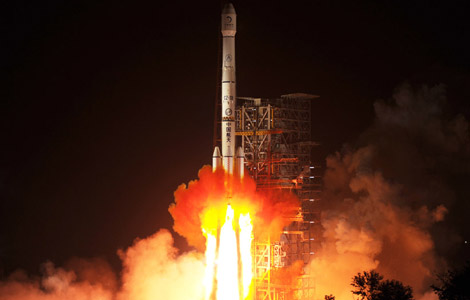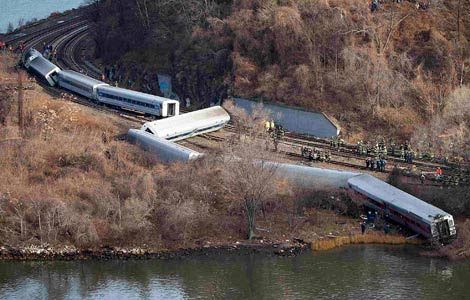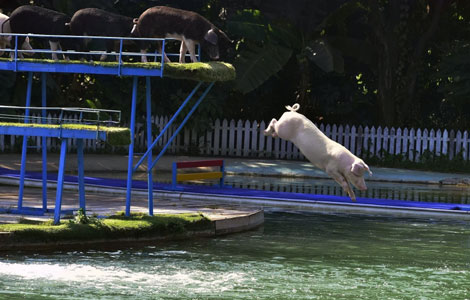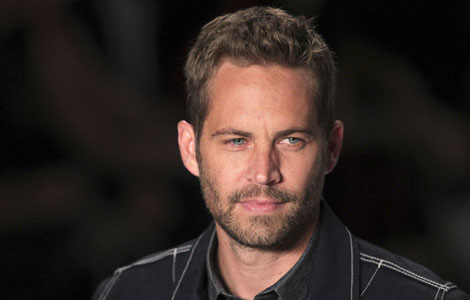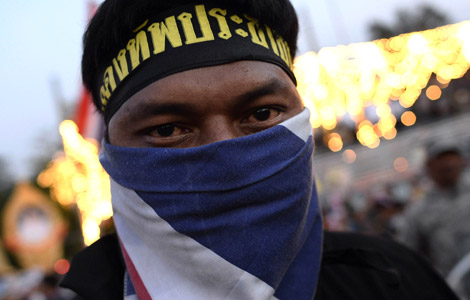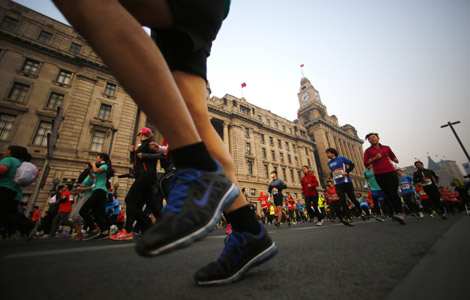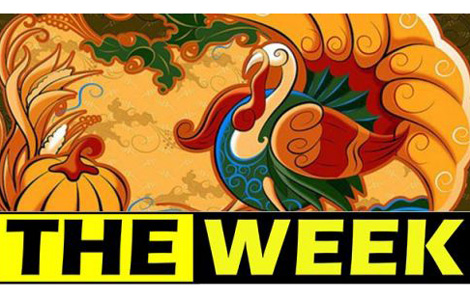Time Japan owned up its war crimes
Updated: 2013-12-02 07:26
By Martin Sieff (China Daily)
|
||||||||
When Japan surrendered to the Allied powers on September 2, 1945, it specifically accepted the terms of the Potsdam Proclamation of July 26, 1945, which incorporated by reference the terms of the Cairo Declaration. Under the terms of the Cairo Declaration and the Potsdam Proclamation, sovereignty of the Diaoyu Islands was returned to China.
Twenty-first century Americans are virtually ignorant of the appalling suffering Chinese people endured during that period, or of the deep conviction it generated among succeeding generations of Chinese that the world's most populous nation with its 5,000-year history should never again be subjected to such horrors.
Yet for all of Japan's great achievements in building the world's second largest economy since World War II (now third after China), its leaders have never stood up and fully expressed contrition and remorse, and taken moral responsibility for their country's appalling crimes during that period. This silence stands in striking contrast to the moral courage of successive German chancellors from Konrad Adenauer to Angela Merkel who have minced no words in expressing their abhorrence for and rejecting of their country's Nazi past.
In contrast to Germany's sincere apologies, Japanese politicians have repeatedly denied the scale and horrors of their invasion and occupation of China and the widespread enslavement of hundreds of thousands of Korean and Chinese "comfort women".
But this policy of Japanese politicians continues to backfire. The more Japan tries to bury its horrific crimes of World War II, the more fear and distrust it generates in China, the Democratic People's Republic of Korea and the Republic of Korea. China's anger and reaction to Japan's renewed claims to the Diaoyu Islands can only be understood in this context.
Therefore, the 70th anniversary of the Cairo Declaration is the right time for Japanese leaders to face up to that terrible, dark chapter in their nation's history. US President Barack Obama has repeatedly displayed a keen and admirable sense of history and sympathized with people for their suffering. It's time he, given his influence over Japan, urged Japanese politicians to follow this course of action and make it clear to the Chinese people that he understands their suffering and respects historical memories.
The author is chief global analyst for the Globalist and a senior fellow of the American University in Moscow. He is also the author of Shifting Superpowers: The New and Emerging Relationship between the United States, China and India.
(China Daily 12/02/2013 page9)
Most Viewed
Editor's Picks

|

|

|

|

|

|
Today's Top News
Cheap luxury, startup required
Drama Rhinoceros In Love staged in New York
Washington's panda named Bao Bao
At least 4 dead in NYC commuter train derailment
China's new billionaires may have a lot to learn
China launches moon rover
Internships in DC payoff for Asian youth
Japan ignores Cairo Declaration
US Weekly

|

|


